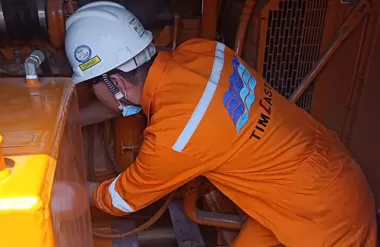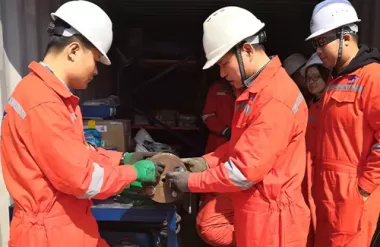Mar. 15, 2023
Chemical cleaning in piping is a process that involves the use of chemicals to remove impurities and debris from the interior surfaces of piping systems. The purpose of chemical cleaning is to ensure that the piping system is free from any contaminants that may cause damage or affect the performance of the system.
Chemical cleaning is often performed before the installation of a new piping system or after the maintenance of an existing one. The process is also commonly used to remove rust and scale buildup that may occur over time in pipes. The chemicals used in the process are designed to dissolve and remove the buildup without causing any damage to the pipes.
The chemical cleaning process typically involves several steps, including:
Pre-cleaning inspection: The first step is to visually inspect the piping system to determine the extent of the buildup and identify any areas of concern. This step also involves determining the type and concentration of chemicals that will be required for the cleaning process.
Flushing: Before the chemical cleaning process begins, the piping system is flushed with water to remove any loose debris and to prepare the pipes for cleaning.
Chemical application: The cleaning chemicals are then applied to the piping system. The chemicals may be sprayed onto the interior surfaces of the pipes, or they may be circulated through the pipes using a pump or other equipment.
Soaking: After the chemicals have been applied, the piping system is allowed to soak for a period of time to allow the chemicals to dissolve and remove the buildup.
Rinse: Once the soaking period is complete, the piping system is flushed with water to remove any remaining chemicals and debris.
Post-cleaning inspection: The final step in the process is to visually inspect the piping system to ensure that all contaminants have been removed.
The chemicals used in the chemical cleaning process vary depending on the type of buildup and the material of the piping system. Acid-based cleaners are commonly used to remove rust and scale buildup from metal pipes, while alkaline cleaners may be used for plastic or fiberglass piping systems.
There are several benefits to chemical cleaning in piping systems. These include:
Improved system performance: By removing contaminants and buildup from the interior surfaces of the pipes, the flow of fluids through the system can be improved. This can help to reduce pressure drop and increase efficiency.
Reduced maintenance costs: Chemical cleaning can help to extend the life of a piping system by preventing damage caused by contaminants and buildup. This can reduce the need for costly repairs and maintenance.
Improved safety: Chemical cleaning can help to remove potentially hazardous contaminants from the piping system, reducing the risk of accidents or leaks.
In conclusion, chemical cleaning is an important process for maintaining the performance and safety of piping systems. The process involves the use of chemicals to remove contaminants and buildup from the interior surfaces of the pipes, improving system efficiency and reducing maintenance costs. However, it is important to ensure that the process is carried out safely and correctly to avoid damage to the piping system and potential hazards to workers.
Dec. 12, 2023
The Basics of Electric Heat Trace Technology In the world of industrial processes and temperature control, Electric Heat Trace (EHT) technology plays a crucial role.Nov. 23, 2023
Performing a Leak Test: Step-by-Step Guide A leak test is a crucial procedure to ensure the integrity of a system and identify potential leaks in pipes, joints, or containers.Nov. 08, 2023
Main Steps of a Flange Management Procedure Flange management is a critical aspect of maintaining the integrity and reliability of piping systems in various industries.

